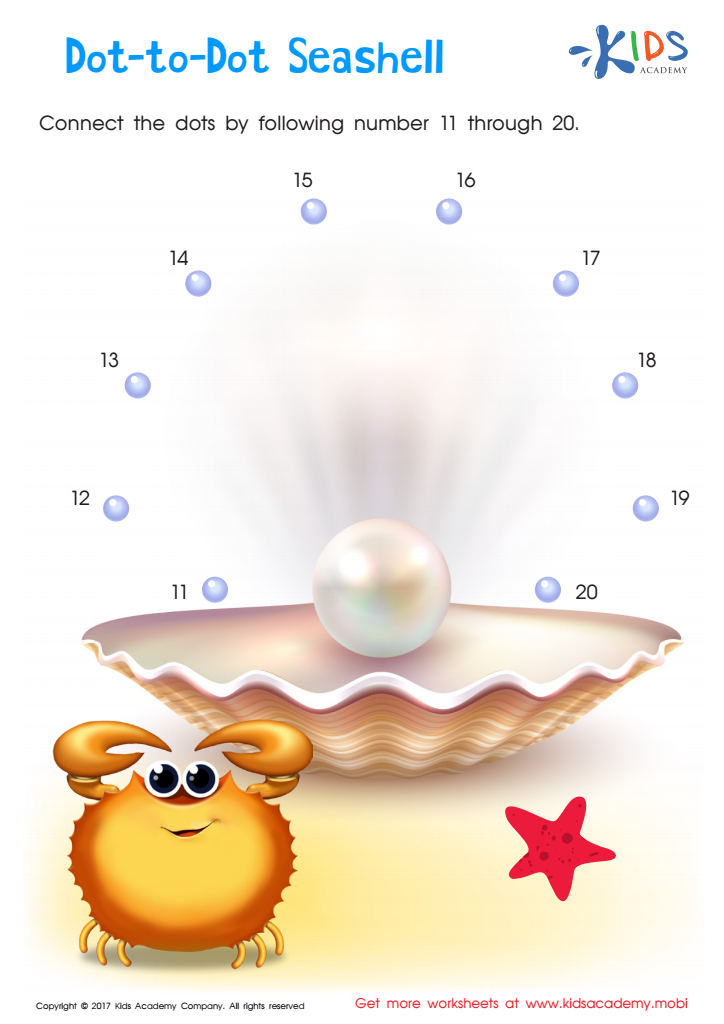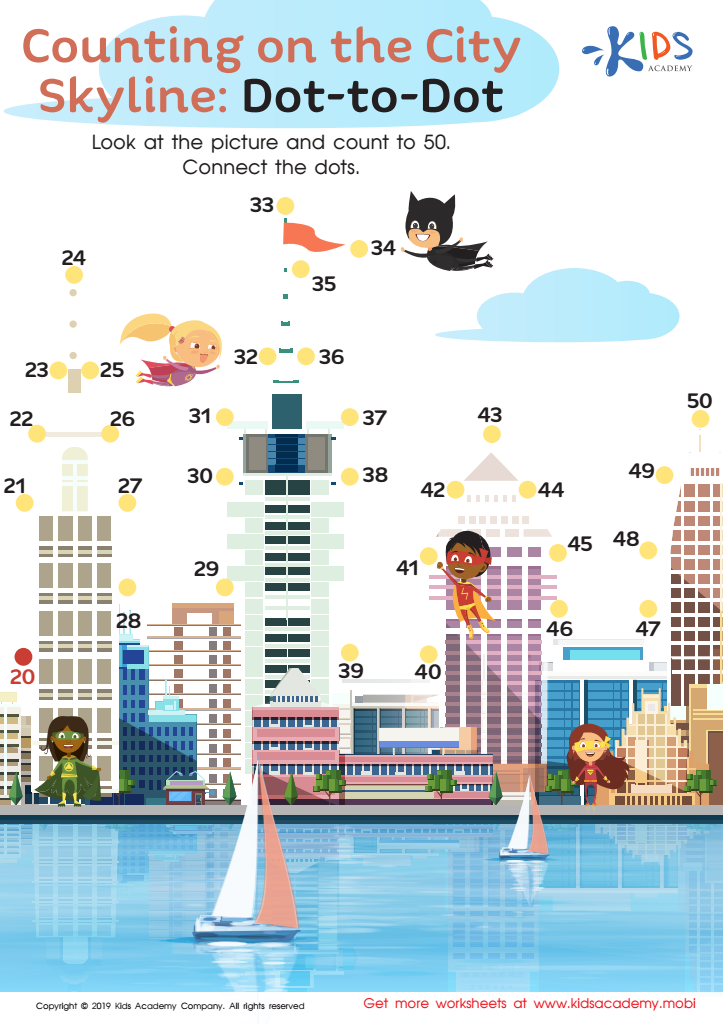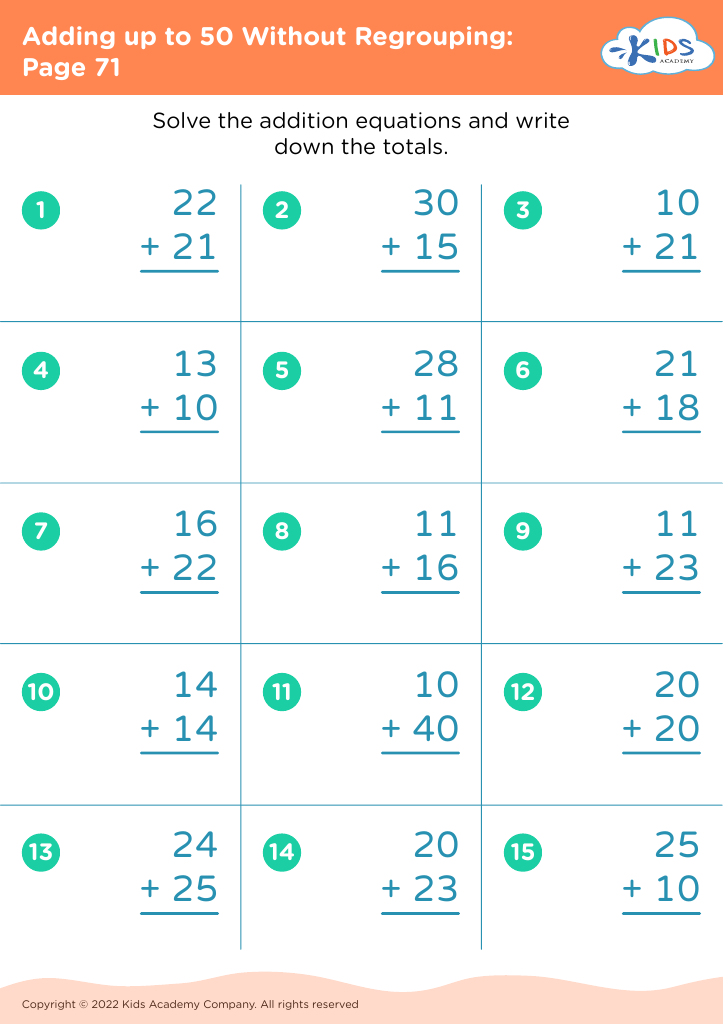Number sequence learning Worksheets for Ages 5-9
3 filtered results
-
From - To
Discover our engaging Number Sequence Learning Worksheets designed specifically for children aged 5-9! These versatile worksheets help young learners master essential sequencing skills through fun and interactive activities. Each worksheet focuses on recognizing, arranging, and understanding number patterns, promoting critical thinking and problem-solving abilities. With colorful illustrations and age-appropriate challenges, your child will enjoy practicing their number sequences while building a solid foundation in math. Perfect for in-class learning or at-home practice, our worksheets make learning exciting and effective. Explore our collection today and support your child's journey toward numerical fluency! Ideal for parents, teachers, and homeschooling families.


Ordering 11–20: Dot–to–dot Seashell Printable


Counting on the City Skyline: Dot-to-Dot Worksheet
Number sequence learning is crucial for children ages 5-9, as it forms the backbone of their mathematical understanding. During these formative years, children develop foundational skills that will influence their future academic success. Understanding number sequences helps children recognize and manipulate patterns, which are fundamental to problem-solving and critical thinking.
For parents and teachers, nurturing number sequence comprehension promotes confidence in young learners. As children master sequences, they gain the ability to perform more complex operations, such as addition, subtraction, and even early multiplication. This mastery not only enhances their math skills but also builds a positive mindset toward learning, reducing anxiety around mathematics.
Moreover, number sequences are pivotal in real-world applications like telling time, understanding numerical data, and making informed decisions based on quantities and values. By fostering these skills in the classroom and at home, adults create an environment that encourages curiosity and ingenuity.
Ultimately, paying attention to number sequence learning helps bridge successful transitions into higher grade levels where mathematical reasoning is vital. It equips children with lifelong skills essential for navigating both academic challenges and everyday scenarios, making it a responsibility and priority for parents and educators alike.


 Assign to My Students
Assign to My Students
















